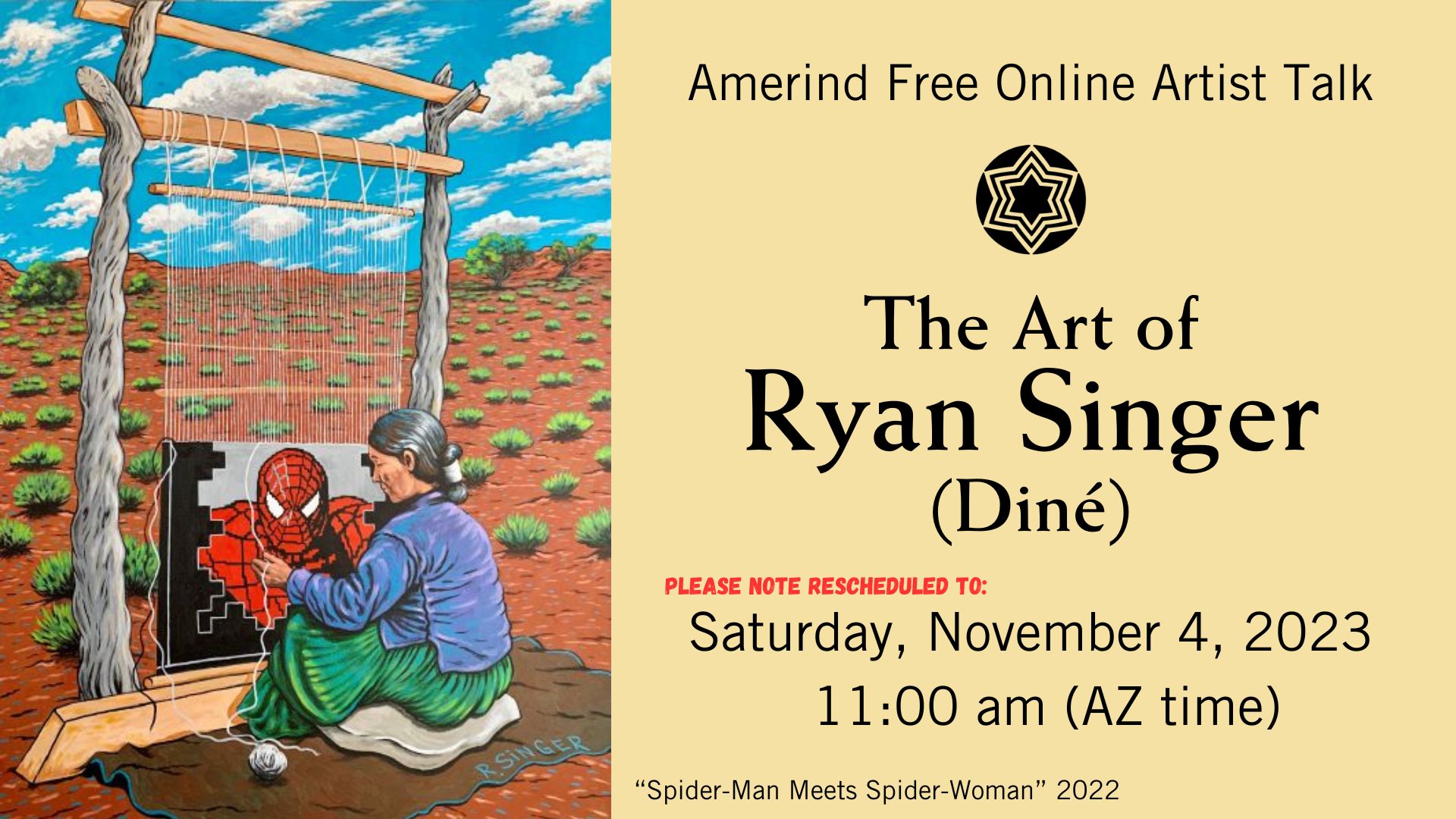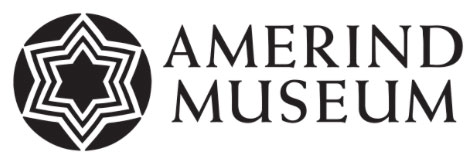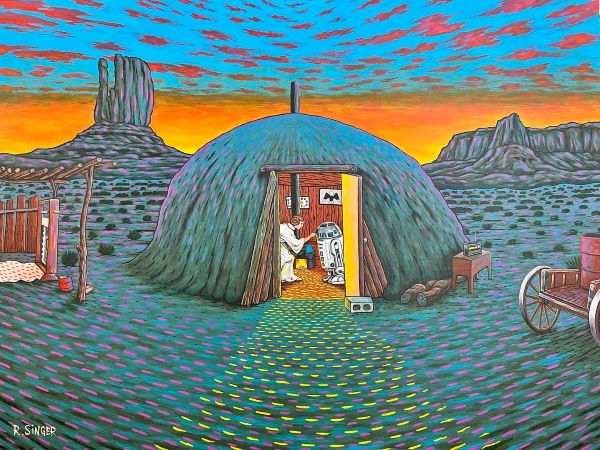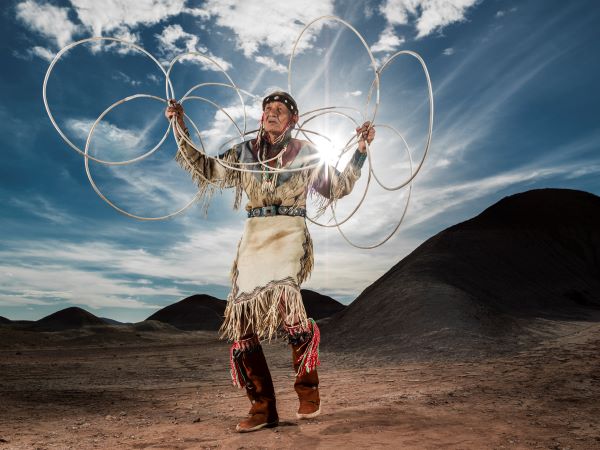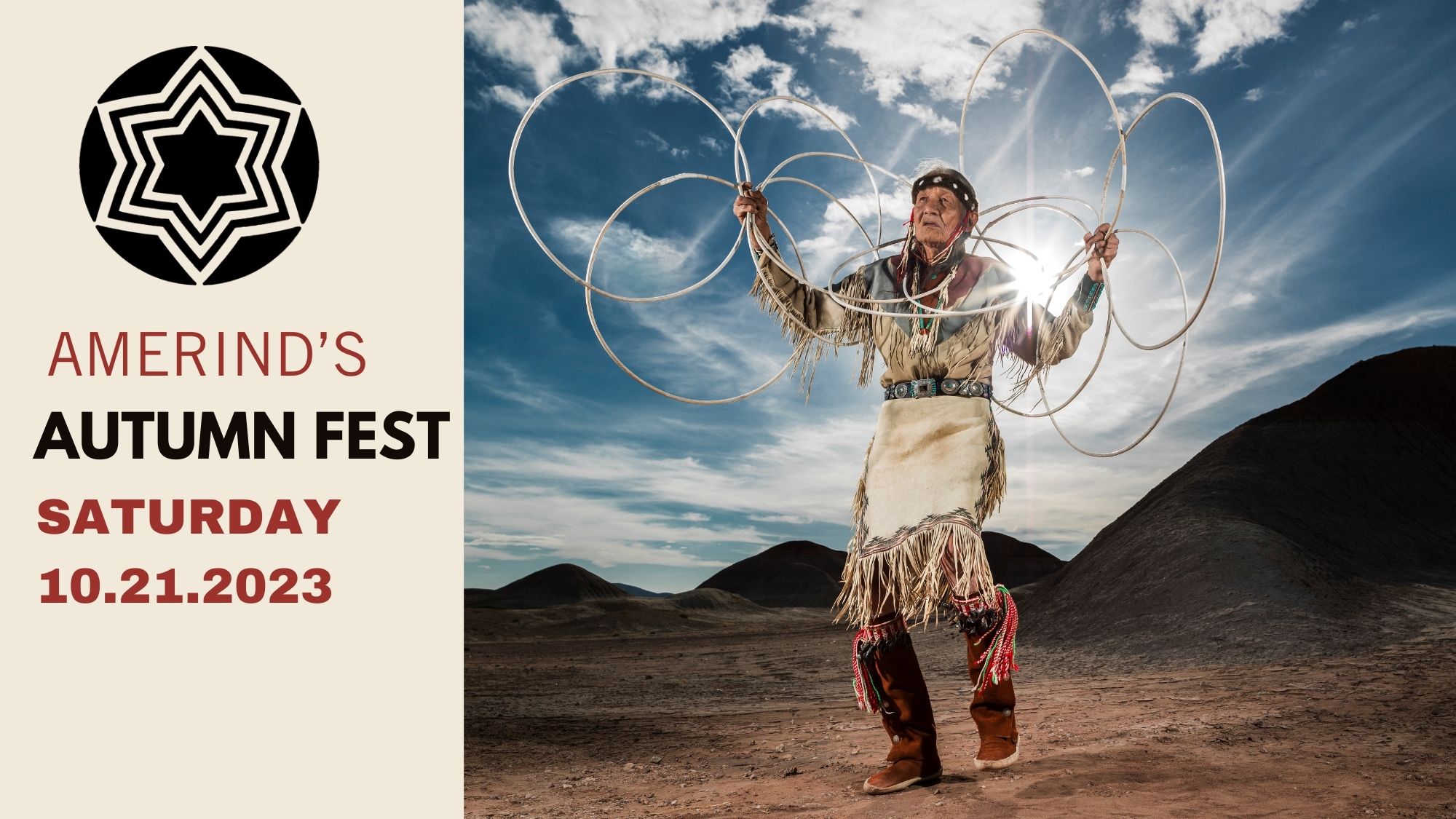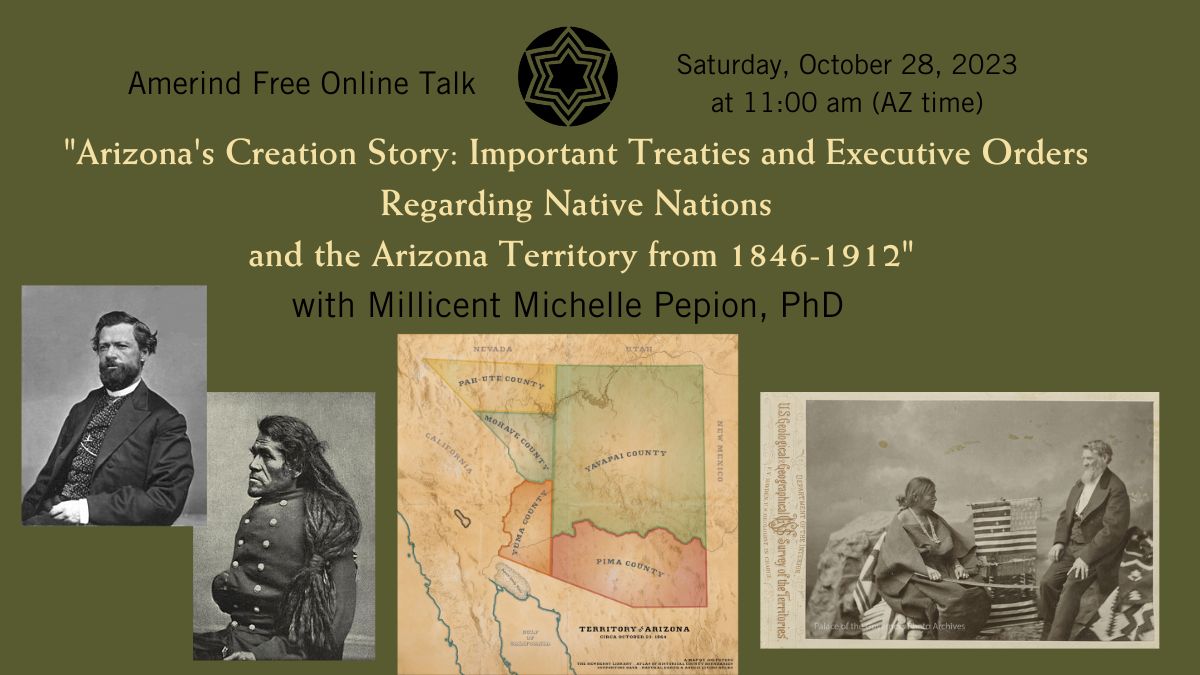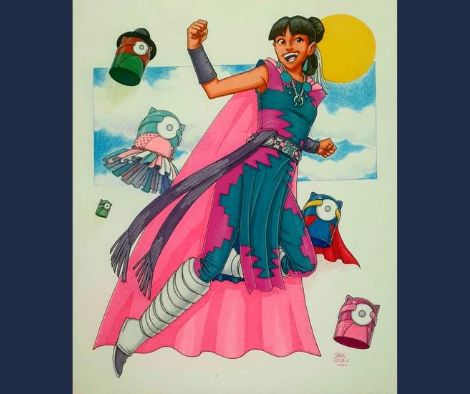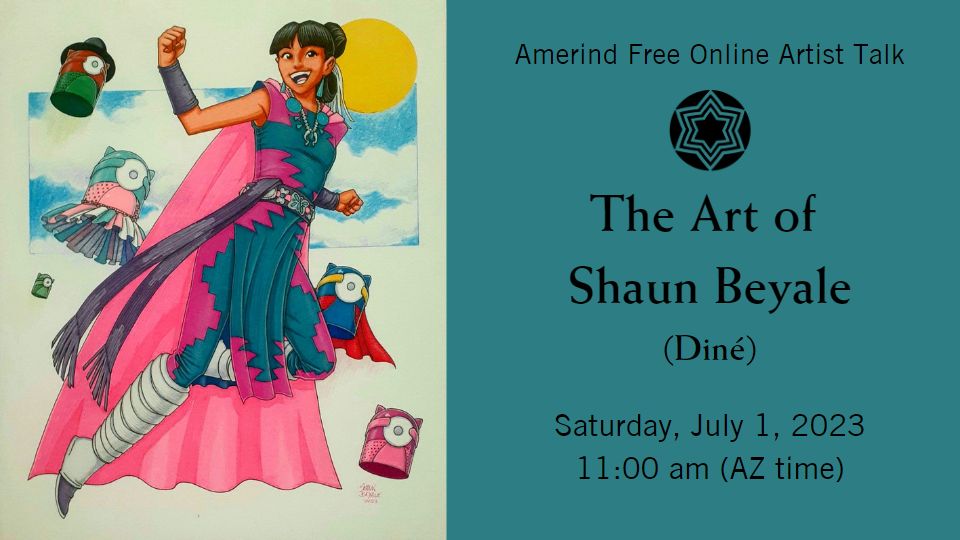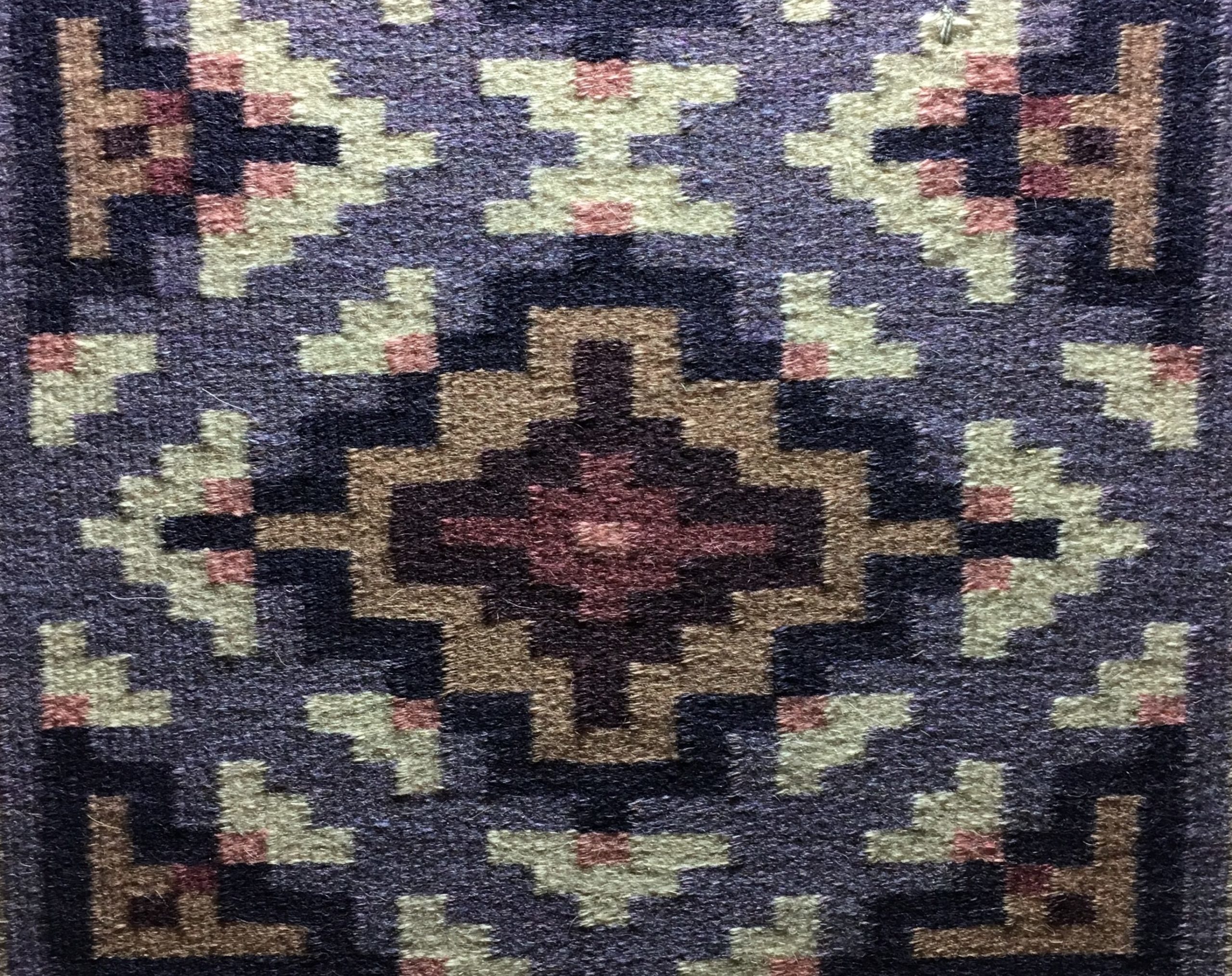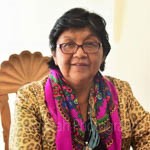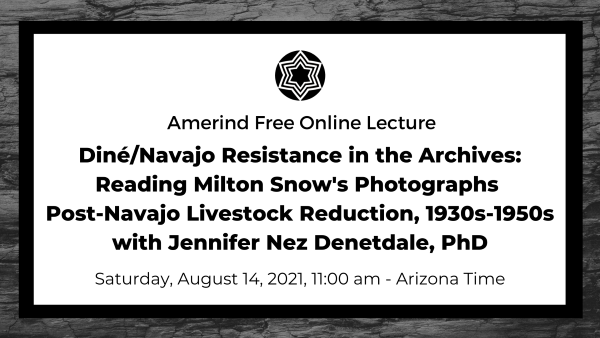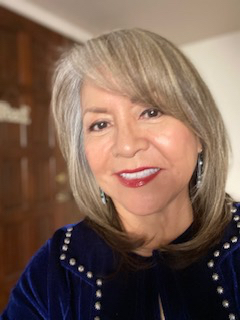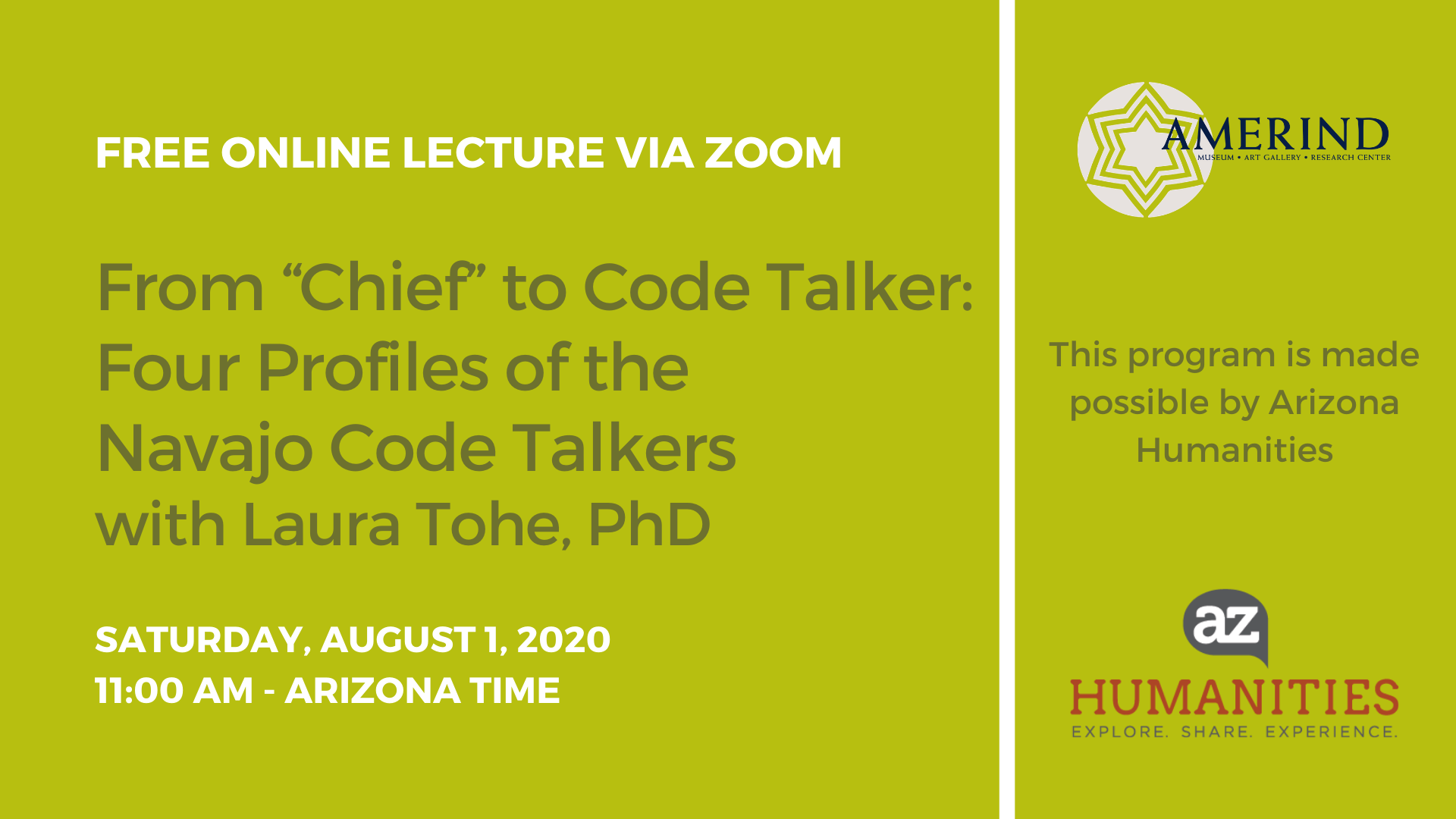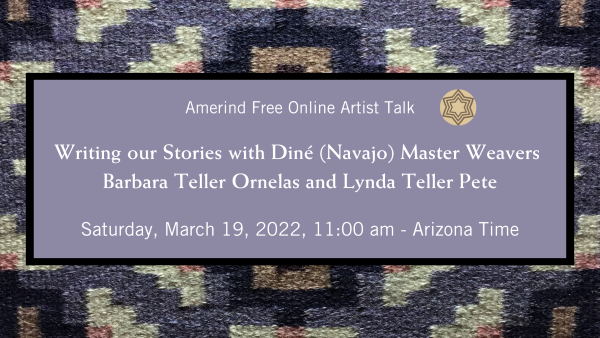
Amerind Free Online Artist Talk
Writing our Stories with Diné (Navajo) Master Weavers Barbara Teller Ornelas and Lynda Teller Pete
Saturday, March 19, 2022, 11:00 am – Arizona Time
Amerind welcomes Diné (Navajo) master weavers Barbara Teller Ornelas and Lynda Teller Pete for the free online talk, “Writing our Stories.” Fifth-generation weavers who grew up at the fabled Two Grey Hills trading post, Barbara and Lynda are considered among the very most skillful and artistic of Diné weavers today. During their presentation Barbara and Lynda will discuss the experience of writing their book “Spider Woman’s Children,” a work delving into the realm of Diné weaving.
Barbara Jean Teller Ornelas is a fifth-generation Master Navajo Weaver and culture bearer, raised near the famed Two Grey Hills Trading Post on the Navajo Nation. Her father, Sam Teller (1918–2000), was a Navajo trader for thirty-two years, and her mother, Ruth Teller (1928–2014), was a weaver, gardener, quilter and photographer. When Teller Ornelas was ten, her paternal grandmother dreamt that her granddaughter would become a great weaver who shared their traditions around the world. Fifty-six years later, Teller Ornelas has not only honed her artistry as a Two Grey Hills weaver, but shared it with audiences internationally in the form of workshops, lectures, and exhibitions.
For Teller Ornelas, weaving is a living thing, and she uses her weavings to tell stories—a legacy passed down by her great-grandfather, a Keeper of Stories who was a prisoner of war at Bosque Redondo after the U.S. military forcibly relocated the Navajo people in 1863. Teller Ornelas is herself a survivor of two U.S. government residential schools—institutions which aimed to eradicate Navajo culture. In the face of this, she has dedicated her life to preserving and innovating Navajo weaving. Her designs reference both her matrilineal traditions and lived experience. As a teacher, she has shared her knowledge with students from Arizona, to Peru, to Uzbekistan, building solidarity with other indigenous peoples. Today, her mission is to connect Navajo people in her own cultural ecosystem with their heritage by passing on this crucial ancestral knowledge, and nurturing new generations of Navajo weavers.
Navajo tapestry weaver Lynda Teller Pete was born into the Tábąąhá (Water Edge Clan) and born for the Tó’aheedlíinii (Two Waters Flow Together Clan). Originally from the Two Grey Hills, Newcomb, NM areas of the Navajo Nation. She lives in Denver with her husband Belvin Pete. Weaving is a legacy in the Teller family. For over seven generations, her family has produced award-winning rugs in the traditional Two Grey Hills regional style. Along with her weaving, Lynda is collaborating with fiber art centers, museums, universities, fiber guilds and other art venues to educate the public about Navajo history and the preservation of Navajo weaving traditions. Lynda and her sister Barbara wrote Spider Woman’s Children, Navajo Weavers Today in 2018. This book is the first book written about Navajo weavers by Navajo weavers since the time of Spanish and colonial contacts. Lynda has also collaborated with three authors on the book, Navajo Textiles: The Crane Collection at the Denver Museum of Nature and Science in 2016. Lynda has a Bachelor of Science degree in Criminal Justice in Public Programs from Arizona State University. Lynda and Barbara’s new book “How To Weave a Navajo Rug and Other Lessons from Spider Woman” published by Thrums Books/Schiffer Publishing is now available.
From the age of six, when Lynda was officially introduced to weaving, instilled the belief that beauty and harmony should be woven into every rug. “In our Teller family, we regard weaving as our life’s work. Weaving represents our connection to the universe. It is our stories, our prayers, and our songs that are told, chanted, sung, and preserved in the weaving motions. Every weaver has stories to tell about his or her weaving, and every weaving has stories to tell about the weaver: the sights, the sounds, the smells, and the signature styles. And each weaver is unique. I touch tapestries woven by my grandmothers, my mother, my sisters, my cousins, my niece, my nephew, my granddaughter, my grandson and I see their hands strumming the warps. I hear the resonating beats of their weaving combs, and without seeing them, I know who is weaving just by the sound of their beats. I see tears, fears, and joy, and I hear laughter, soothing words of comfort, and loud congratulatory cheers. Unlike our elder Navajo weavers, people will know our names; they will see our faces, know our stories, and they will hear our songs and our prayers on each tapestry that we create.” Today, Lynda Teller Pete continues to carry this weaving tradition.
This online program is free, but space is limited. To register visit: https://bit.ly/AmerindOnline031922
